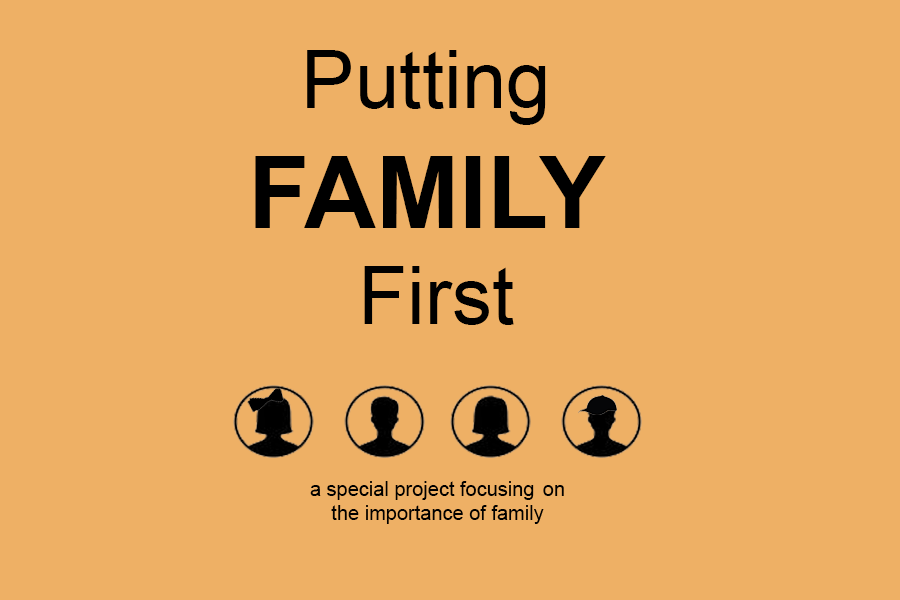Junior Kelly Gothard and mom reflect on life in Romania, Canada and America
Junior Kelly Gothard and family assimilate to American culture while still maintaining heritage
January 15, 2015
The year was 2001, and with a toddler and a baby along for the ride, a family of four moved to Shawnee from Canada.
In June of that year, junior Kelly Gothard’s family relocated from Toronto to the Mill Valley area. Kelly’s father Zoltan Gothard had secured a job in Kansas City, so the family left behind their Hungarian community in Toronto for a life here.
Originally from Romania, Kelly’s parents had been through a culture change once before. Both Zoltan and Kelly’s mother Katalin Gothard were born in Romania and had known each other since childhood. When he was 13, Zoltan’s family moved to Canada, and he and Katalin kept in touch during his college years. After traveling back to visit his relatives in Romania, Zoltan married Katalin, and she joined him in Canada soon after. They lived there for three years before relocating to Shawnee.
As Kelly was only three years old at the time of the move, Canada has never been the place she associates with her upbringing.
“[The U.S.] in my head is home just because I’ve grown up here for the most part,” Kelly said.
For Katalin, though, the move from Canada took a bit more adjustment as she was engulfed in American culture. While she admitted that Canada was not too different than the United States, Katalin regarded Toronto as a “very multicultural city,” while Kansas City had “some degree of multicultural aspect to it,” but not to the extent that Toronto did.
In Toronto, the family was able to live around fellow Hungarians. The move to Kansas City, Katalin said, forced her to learn English at a faster pace than she would have had she continued to live in Canada and not have been exposed to as many native English speakers. In addition to language adjustments, the family’s culinary habits changed as a result of their immersion in a somewhat unfamiliar atmosphere.
“The cooking style changes whether you like it or not, because sometimes you just can’t find the ingredients that you found back in Europe or even in Canada,” Katalin said. “Again, I’m going back to the multicultural aspect of it; [Canada has] Italian stores, Hungarian stores, and those stores contain the products that you need. Here, you have Walmart and Price Chopper.”
While distinctions in Canadian and American lifestyles existed, Romania and Kansas City possessed the greatest differences between the places Katalin lived. Although she had resided in Canada for three years, remnants of her Romanian upbringings still caused a need for adjustment in the United States.
“People are a bit more distant than back in Europe,” Katalin said. “In Europe, your door is not locked; people knock and walk in – your friends; your neighbors. Here, you have to make the phone call and set up schedules. I think here, people’s lives are a lot more fast-paced than back in Europe.”
Moving here meant having no nearby relatives, so the family made sure to continue to connect with those who remain in Romania and Canada.
“We visit [Canada] pretty often, like almost every year, so I have memories of visiting my grandparents and aunts and uncles,” Kelly said. “I’ve been to Romania three times.”
To atone for a life away from its roots, the family spent more time together.
“[My mom and I] watch ‘Modern Family’ together; we shop together,” Kelly said. “We’ve gotten pretty close.”
Ultimately, the family balanced a maintenance of heritage with the necessity to keep up with the hustle and bustle of American life. Katalin said it best.
“I do still cook some of our traditional foods like brioche or chicken paprikash. [But] during the years, you learn to adjust to the faster-paced life,” Katalin said. “And [in] the faster-paced life, it’s easier to just put the pizza in the oven.”












